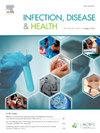Australian infection prevention and control leads' perceptions of their roles and responsibilities in residential aged care during the COVID-19 pandemic: A qualitative study
IF 2
Q2 PUBLIC, ENVIRONMENTAL & OCCUPATIONAL HEALTH
引用次数: 0
Abstract
Background
Residents of residential aged care facilities were disproportionately impacted by COVID-19. In 2020, the Australian Government mandated the appointment of Infection Prevention and Control (IPC) leads. The aim of this research was to explore the experiences of IPC leads working in Australian residential aged care facilities during the COVID-19 pandemic, to improve preparation for future pandemics.
Methods
Infection Prevention and Control leads working in small and large residential aged care facilities for more than 12 weeks between December 2020 and December 2022 participated in individual semi-structured interviews. Data were analysed via thematic analysis.
Results
Seven IPC leads were interviewed. Seven themes emerged: 1. Transition into IPC Lead Role, 2. Role and Responsibilities, 3. Facilitators and Barriers to Effective Implementation, 4. Role Reception and Implementation, 5. Role Evaluation, 6. Unique Challenges and Contextual Factors, and 7. Future Directions. Particular challenges included lack of consistent guidance and role descriptions, workloads, sufficient resourcing, role evaluation strategies, and training specifically focused on the setting. Residential care settings provided specific challenges related to the clientele, including the difficulties isolating residents with dementia, and impacts on resident quality of life.
Conclusions
The study findings describe the multifaceted role and experiences of IPC leads during the COVID-19 pandemic. The unique challenges and evolving nature of the role underscore the need for flexible and adaptive approaches to IPC. Developing evidence-based guidelines, enhancing training programs, improving resource allocation, and fostering supportive organisational cultures will be critical in addressing the challenges identified in this study.
2019冠状病毒病大流行期间澳大利亚感染预防和控制领导对其在住宅老年护理中的作用和责任的看法:一项定性研究
背景:新型冠状病毒肺炎对居家养老机构居民的影响尤为严重。2020年,澳大利亚政府授权任命感染预防和控制(IPC)负责人。本研究的目的是探索在2019冠状病毒病大流行期间在澳大利亚住宅老年护理机构工作的IPC领导的经验,以改进对未来大流行的准备。方法:对2020年12月至2022年12月期间在小型和大型居家养老机构工作12周以上的感染预防与控制负责人进行个人半结构化访谈。数据通过专题分析进行分析。结果:对7名IPC导联进行了访谈。出现了七个主题:1。过渡到IPC领导角色,2。角色和职责;有效实施的促进因素和障碍,4。5.角色接收与执行;6.角色评估;独特的挑战和环境因素;未来方向:特别的挑战包括缺乏一致的指导和角色描述、工作量、足够的资源、角色评估策略,以及专门针对环境的培训。住宿护理环境提供了与客户相关的具体挑战,包括隔离患有痴呆症的居民的困难,以及对居民生活质量的影响。结论:研究结果描述了COVID-19大流行期间IPC领导人员的多方面作用和经验。这一作用的独特挑战和不断变化的性质强调了对IPC采取灵活和适应性方法的必要性。制定基于证据的指导方针,加强培训计划,改善资源分配,培养支持性的组织文化将是解决本研究确定的挑战的关键。
本文章由计算机程序翻译,如有差异,请以英文原文为准。
求助全文
约1分钟内获得全文
求助全文
来源期刊

Infection Disease & Health
PUBLIC, ENVIRONMENTAL & OCCUPATIONAL HEALTH-
CiteScore
5.70
自引率
5.70%
发文量
40
审稿时长
20 days
期刊介绍:
The journal aims to be a platform for the publication and dissemination of knowledge in the area of infection and disease causing infection in humans. The journal is quarterly and publishes research, reviews, concise communications, commentary and other articles concerned with infection and disease affecting the health of an individual, organisation or population. The original and important articles in the journal investigate, report or discuss infection prevention and control; clinical, social, epidemiological or public health aspects of infectious disease; policy and planning for the control of infections; zoonoses; and vaccination related to disease in human health. Infection, Disease & Health provides a platform for the publication and dissemination of original knowledge at the nexus of the areas infection, Disease and health in a One Health context. One Health recognizes that the health of people is connected to the health of animals and the environment. One Health encourages and advances the collaborative efforts of multiple disciplines-working locally, nationally, and globally-to achieve the best health for people, animals, and our environment. This approach is fundamental because 6 out of every 10 infectious diseases in humans are zoonotic, or spread from animals. We would be expected to report or discuss infection prevention and control; clinical, social, epidemiological or public health aspects of infectious disease; policy and planning for the control of infections; zoonosis; and vaccination related to disease in human health. The Journal seeks to bring together knowledge from all specialties involved in infection research and clinical practice, and present the best work in this ever-changing field. The audience of the journal includes researchers, clinicians, health workers and public policy professionals concerned with infection, disease and health.
 求助内容:
求助内容: 应助结果提醒方式:
应助结果提醒方式:


